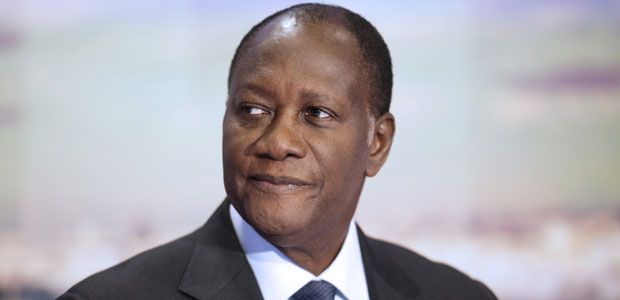Ouattara coalition set to win Ivory Coast elections
The ruling coalition of President Alassane Ouattara is expected to comfortably win Sunday’s parliamentary elections in Ivory Coast – the first since 2000.

After civil war and years of political turmoil, Sunday’s poll is the first time for more than a decade that the West African country has been able to elect a parliament.
Mr Ouattara won presidential elections in November 2010, but was only able to take power in April after fighters backing him invaded the economic capital Abidjan and captured ex-leader Laurent Gbagbo, who had rejected the results.
He has vowed to reconcile the country, split along north-south lines by ethnicity and religion, and revive what was once the region’s most vibrant economy. Ivory Coast is the world’s top producer of cocoa, the main ingredient in chocolate, but also produces gold, oil and cotton.
Analysts said Mr Ouattara’s coalition was likely to achieve a landslide victory based on voting patterns during the first-round of presidential polls in 2010.
Crimes against humanity
Laurent Gbagbo was sent to The Hague in November to face charges of crimes against humanity. More than 3,000 people were killed in post-election fighting and a million displaced.
The United Nations (UN) has said atrocities were carried out by troops loyal to Gbagbo and Ouattara. The conflict followed a civil war in 2002-3 that split the country in two, and years of political unrest, during which Gbagbo repeatedly delayed elections.
Didier Drogba
After meeting the president of the Ivorian truth and reconciliation commission, former prime minister Charles Konan Banny, he said Ivory Coast should draw on South Africa’s history.
“What happened in South Africa took a long time, but they managed to do it,” he said. “I don’t know why Ivory Coast couldn’t do it. It’s possible.It’s not going to happen tomorrow. It’s a long process, and I want to be involved in that process.”
A former Gbagbo spokesman said three pro-Gbagbo parties would participate in the polls. Violence in parts of the country, particularly in the west, have led to worries that there could be trouble during the polls, which will be secured by local and UN forces.
Campaigning has been largely peaceful, but three people were killed on 7 December in a rocket blast at a rally in Grand-Lahou, in the south west.
-
Latest news
-
Taylor Swift’s new break-up album breaks records3m

-
NHS trust fined £200K for failings that led to death of two mental health patients3m

-
Sunak vows to end UK ‘sick note culture’ with benefit reform3m

-
‘Loose talk about using nuclear weapons is irresponsible and unacceptable’, says head of UN’s nuclear watchdog3m

-
‘There wasn’t an Israeli attack on Iran,’ says former adviser to Iran’s nuclear negotiations team7m

-




